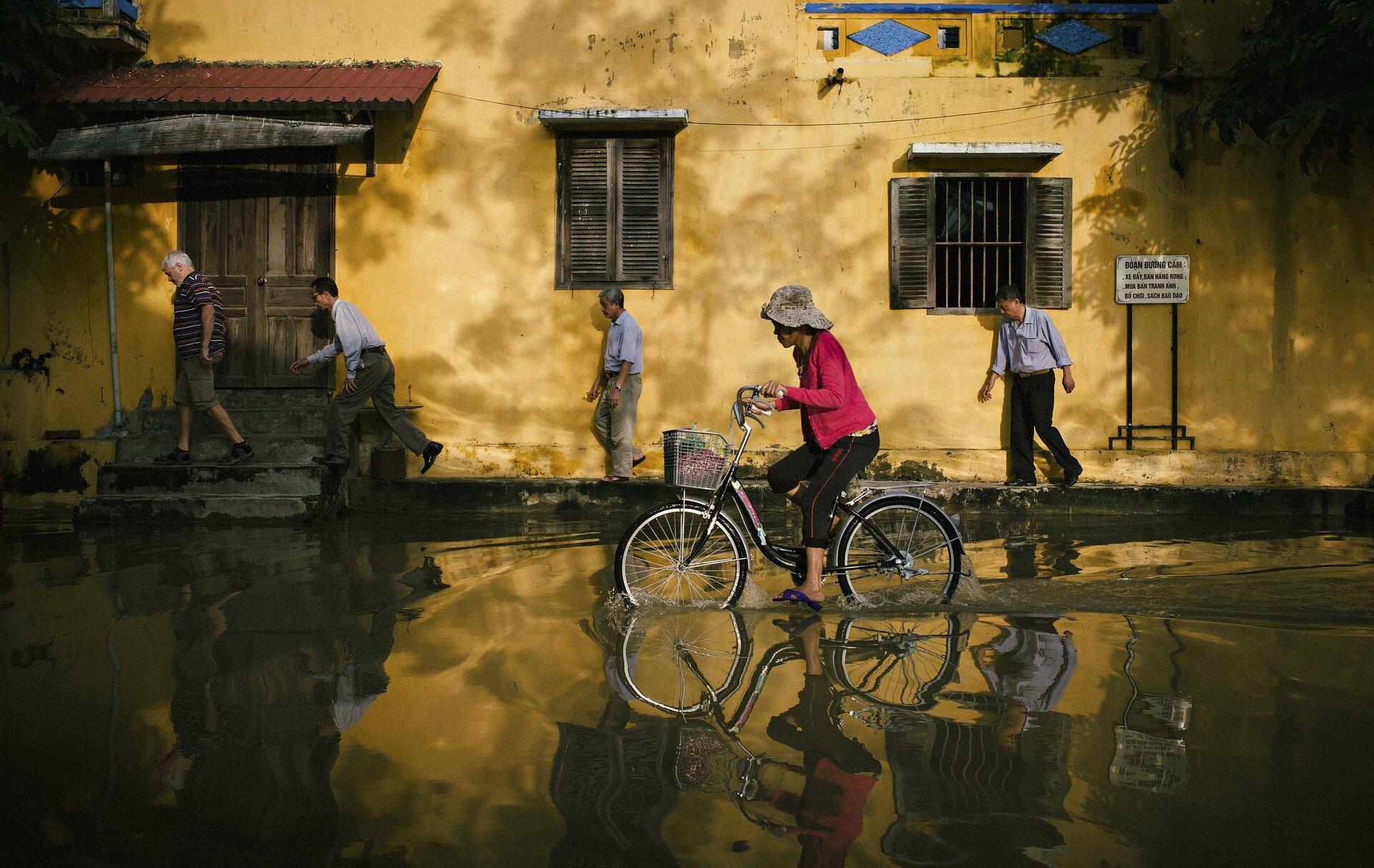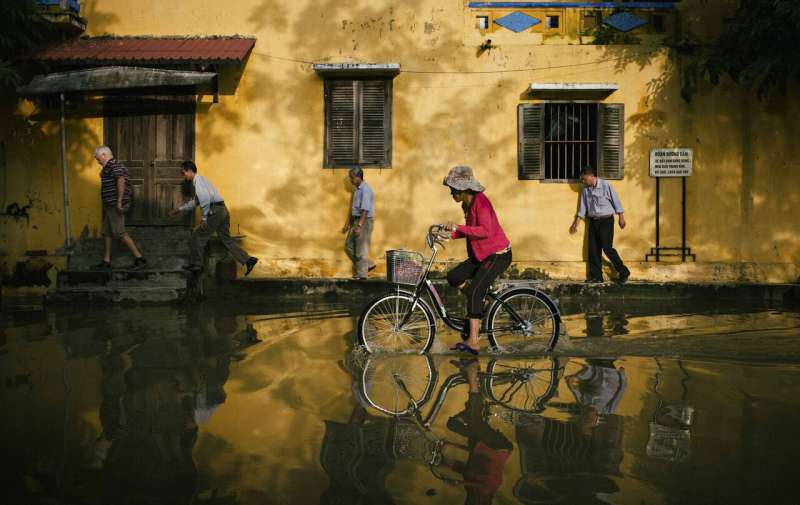

Half of the world’s population lives in cities, and that proportion is expected to increase to 70% by 2050. With their large populations, lack of green spaces that can cool a warming environment, and aging infrastructure that is vulnerable to floods and other extreme weather, many of the world’s cities are unprepared for climate change.
Proactive action is needed to make cities more resilient to climate change and capable of protecting community health, according to a new report released today (Sept. 26) by the Yale School of Public Health (YSPH), the Resilient Cities Network, and The Rockefeller Foundation.
The report, “Urban Pulse: Identifying Resilience Solutions at the Intersection of Climate, Health, and Equity,” is based on a survey of nearly 200 city leaders in 118 cities and 52 countries about their preparedness for responding to climate-related health threats.
Less than half of the cities reported having a climate resilience plan, and only one in four indicated that their plan addressed climate and health. The research was funded by The Rockefeller Foundation, which also announced today that it will invest more than $1 million to help cities implement the report’s recommendations. The announcement was made during Climate Week NYC.
The Urban Pulse report highlights the need for city leaders to recognize the impact of climate change on residents’ health, including mental health, “through resources, infrastructure, and collaboration to ensure that these profound threats have been limited,” said Jeannette Ickovics, the lead author of the report and the Samuel and Liselotte Herman Professor of Social and Behavioral Sciences at YSPH.
A health-centered response to climate change by cities is crucial for global health, Ickovics said.
“We call on the global community to put health at the heart of the urban climate change agenda, to amplify and scale-up evidence-based solutions, and to invest in new financing models that prioritize rapid disbursement to cities so that they can build and sustain resilience,” she said.
Ickovics and her team of faculty and students at the Yale Center for Climate Change and Health, the Yale Institute for Global Health, and Yale Planetary Solutions are working with the Resilient Cities Network to address climate, health, and equity challenges in low- and middle-income countries, as city populations rise across the world.
According to their report, cities like Rio de Janeiro in Brazil and Ho Chi Minh in Vietnam likely will experience dengue fever outbreaks due to larger mosquito populations. Coastal cities like Miami and Dubai will likely face more frequent and severe flooding from rising sea levels.
“Cities are acutely aware that climate change poses serious health risks, which disproportionately affect populations that face vulnerabilities,” said Lauren Sorkin, executive director of the Resilient Cities Network. “The R-Cities network of chief resilience officers is at the forefront of addressing these challenges, driving cross-sector collaboration to pilot and scale equitable, innovative solutions.”
Making cities more resilient
Based on their survey data and interviews with city leaders in Africa, Asia, and Latin America, Ickovics and the Resilient Cities Network assembled 10 recommendations to guide local government leaders in making their communities more climate resilient. These include:
- Identifying unique climate shocks and stressors that pose the largest threats to vulnerable populations
- Implementing data-driven, community-focused adaptation programs like greening initiatives and population-based mental health support to address health, climate, and equity
- Investing in green energy and other energy-efficient systems that contribute to a zero-carbon economy
- Establishing and reinforcing early-warning mechanisms for climate-related catastrophic events like hurricanes, heat waves, and floods
- Fostering city-to-city collaborations to share best-practices in the fight against climate threats
The Rockefeller Foundation’s investment will empower the C40 Cities Climate Leadership Group—a global coalition of nearly 100 mayors—to address climate change and the Resilient Cities Network to implement the report’s recommendations through city-led action plans similar to those mentioned in the report, like Rio de Janeiro’s recent push to forecast dengue, and a community-engagement initiative for cholera vaccine uptake in Lusaka, Zambia.
“As these cases make clear, city-led action can save lives,” The Rockefeller Foundation’s press release announcing the investment states. If the plan championed by this report were implemented for just one heat wave in Dhaka, Bangladesh, preliminary estimates found a $1 to $7 return on investment in terms of lives saved among the most vulnerable—illustrating the tremendous economic value at stake, the foundation reported.
The Rockefeller Foundation’s announcement at Climate Week NYC followed a panel discussion about climate and health resilience in cities, led by The Rockefeller Foundation, the Resilient Cities Network, and Yale.
“We must leverage this research to unite in a vision of urban resilience—harnessing our collective wisdom and strength to build a healthier, more equitable, and sustainable urban environment for all,” Ickovics said.
More information:
Urban Pulse: Identifying Resilience Solutions at the Intersection of Climate, Health and Equity. resilientcitiesnetwork.org/urb … imate-health-equity/
Provided by
Yale University
Citation:
Cities unprepared for impact of climate change, says report (2024, September 30)
retrieved 30 September 2024
from https://phys.org/news/2024-09-cities-unprepared-impact-climate.html
This document is subject to copyright. Apart from any fair dealing for the purpose of private study or research, no
part may be reproduced without the written permission. The content is provided for information purposes only.